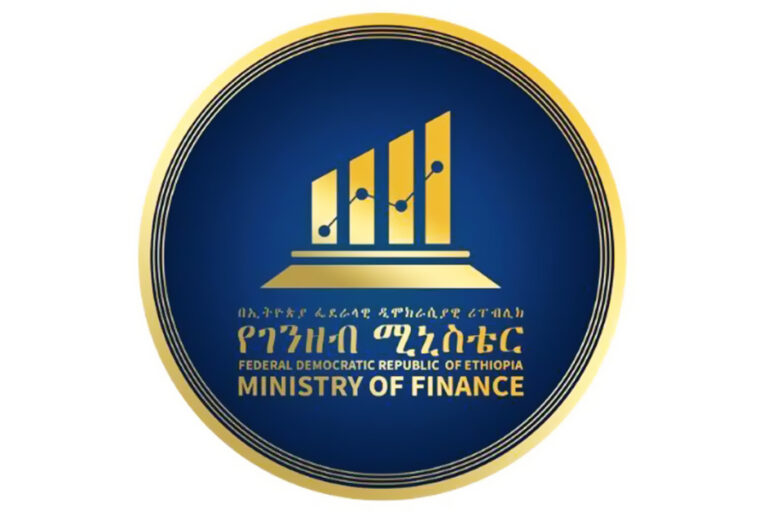Horizon Addis Tyre Manufacturing company wins the third Africa Kaizen award as an outstanding performer in the large scale organizations from the Africa continent for its excellent activities on quality and productivity improvement or Kaizen and having achieved better results which serves as a model cases to be shared in Africa.
The third Africa Kaizen award was held on August 25, 2021 in Tanzania. The company participated in the African Kaizen award, which was organized by AUDA-NEPAD and JICA (The African Union Development Agency- New Partnership for Africa’s Development and the Japan International Cooperation Agency). Announcement of the awardees was made at the Awarding ceremony 2021 which was held at the African Kaizen Annual Conference (AKAC) 2021. Accordingly, Horizon Addis Tyre manufacturing Plc was chosen and awarded as an outstanding performer in the large scale organization with a size of more than 250 employees for excellent activities on quality and productivity improvement or Kaizen.
As part of improving quality, productivity, competitiveness and building a good work cultures HATM PLC started implementing kaizen in October 2018.
Horizon Addis Tyre tops in Africa Kaizen Award
Rotary International president visits Ethio pia
The president of rotary international, Shekehar Metha’s paid a visit to Ethiopia from September 7-9, 2021. During his visit, the president had discussions with the Ethiopian president Sahilework Zewde and also with the deputy prime minister Demeke Mekonen. The delegation also had a meeting with the ministry of health officials and delegation of rotary officials from the district on issues; health, water sanitation, education and literacy.
The objective of RI president’s visits was to celebrate the achievements of rotary in Ethiopia. And also recognize the effort rotary Ethiopia is taking in fighting the current pandemic in COVID 19. It’s also to be recalled that one of the most remarkable

achievements of Ethiopia, in partnership with rotary, is the total eradication of polio.
Rotary is the worldwide nonpolitical, nonreligious and not-for-profit voluntary network of business and professional leaders that provides humanitarian services, encourage high ethical standards in all vocations and promotes goodwill and peace in the world under its motto of “service above self”. First established in Chicago, now it’s in more than 200 countries across the globe. Rotary is one of the top ten philanthropies in the world and it has an observer status in the United Nations.
Rotary Ethiopia has contributed more than 20 million birr worth in pandemic related equipment to MOH so far and continues its support.
Gov’t stringency leads to external debt contraction in succession
Outflow negates total disbursements
The state owned enterprises (SOEs) external debt contracts for the second consecutive year following the government firmness on non-concessional loans. For the 2020/21 fiscal year, the net external debt resource flows were recorded as negative. Compared to the preceding five years, the total amount of disbursement from external sources was much lower.
The past fiscal year, Public Sector Debt Statistical Bulletin that was published by Debt Management Directorate, Ministry of Finance (MoF) indicated that the external debt stock for SOEs that include enterprises, which access finance without government guarantee has dropped to USD 10.05 billion in the year. It has also reduced in terms of the share of the total outstanding debt that includes domestic debts by 1.6 percentage compared with the preceding year.
The MoF data for the year that ended on June 30 indicated that the SOEs outstanding external loan has stood at USD 10.05 billion that was USD 10.86 billion in June 2020 and USD 11.1 billion in June 2019.
Similarly, from the total outstanding debt the SOEs debt stock has reduced to 18.06 percent that was 19.6 percent and 20.6 percent in the past two years respectively.
Of the total external debt the central government owes 66 percent, while SOEs with and without government guarantees owe the remaining 34 percent.
The MoF annual bulletin stated that the entire external public debt disbursement over the last twelve months (July 1, 2020 – June 30, 2021) was USD 1.4 billion, with around 72 percent of it going to central government projects from various creditors, “the majority of which came from IDA. When compared to the preceding five years, the total amount of disbursement from external sources was much lower.”
During the last year’s new external loan agreements signed by central government with IDA/the World Bank, government of Italy and Dansk SK. Bank amounted to USD 1.4 billion, and as per the non-concessional borrowing limit there was no non-concessional borrowing except Ethiopian Airlines, which signed agreements with its commercial creditors, amounted to USD 363.41 million.
Total external public sector debt service (Principal plus interest and charges) during the last twelve months was USD 1.84 billion of which USD 474 million is interest. Out the total public sector external debt service USD 1.54 billion was made by SOEs.
“The net external debt resource flows are negative over the period, i.e. in 2020/21, implying that the quantity of disbursement from external sources (inflow) is less than the total external debt service payments to creditors (outflow). This is due to lesser external disbursement over the period compared to the previous four years,” MoF explained. The inflow was USD 1.4 billion.
As of June 30, 2021, the total nominal public sector debt (external and domestic) in percent of GDP was about 51 percent, nominal external debt in percent of GDP was around 27 percent, present value of external debt in percent of GDP was around 19 percent, and nominal domestic debt in percent of GDP was around 24 percent.
The total public sector debt stock including domestic as of June 30, 2021, was USD 55.6 billion, compared to USD 55.3 billion as of June 30, 2020. “Total Public Debt in USD shows a minimal change: due to a decrease in Domestic Debt in USD due to a comparatively higher rate of depreciation of birr against USD in 2020/21, while in terms of birr the total domestic debt has increased by 221,506 billion birr.
In terms of share external debt makes up around 53 percent of overall government debt, with domestic debt accounting for the remaining 47 percent.
The central government owes USD 33.2 billion or 60 percent of the total public sector debt outstanding for both external plus domestic, while SOEs owe USD 22.4 billion. Over the last year, the central government’s portion of total public debt stock has climbed by 9 percent, while SOEs’ share has declined by 10 percent, “this can be explained in part by SOE’s zero non-concessional borrowing limit from external creditors, as well as SOE’s lower borrowing from domestic sources and less disbursement from already committed old SOE external loans.”
The total public sector external debt was USD 29.5 billion as of June 30, 2021, compared to USD 29 billion of last year, “The increment in external total public debt is about USD 643 million, or about 2 percent over last year’s stock; the majority of this increment in the stock of debt can be explained by USD exchange rate variation which is about USD 601 million, a relatively higher depreciation of the US dollar, particularly as compared to the SDR and euro.”
“Because Ethiopia is a G20 DSSI eligible country that has signed a Memorandum of Understanding with the Paris Club Secretariat on DSSI related to Paris Club Countries and Non-Paris Club Countries, we are currently not making any external debt service payments for our Bilateral Creditors of Central Governments as per the G20 DSSI,” the MoF bulletin explained and to do that during the period of May 1 ,2020 – June 30 ,2021 as an eligible country of DSSI initiative, has suspended the external debt service payment of central government to its bilateral creditors amounted to USD 220.0 million.
DMP expands transshipment
Doraleh Multipurpose Port (DMP), the modern logistics facility of Djibouti becomes regional transshipment hub.
The facility has received two vessels early last week on the transshipment modality.
According to a statement received from DMP CEO, Mr. Djama Ibrahim DARAR, it is indicated that on Tuesday August 31 it simultaneously welcomed two vessels. One of them is MV Figaro, a ship of Eukor, a global RoRo shipping company that specializes in port-to-port deep-sea transportation of automobiles, rolling equipment and breakbulk cargo, which unloaded 155 vehicles in transit to Ethiopia and the second vessel of MV PrimRose, a ship of the MOL line which loaded 601 vehicles in transshipment.
The PrimRose is one of three vessels chartered by MOL, one of the largest shipping companies in the world, for transshipment in the region.
According to the DMP CEO, this transshipment activity started as planned with the reception of the first batch of 700 vehicles, “then the first export vessel picked up a hundred vehicles sent to Aqaba in Jordan.” It added that the remainder of more than 600 vehicles were taken over by the PrimRose for Alexandria, Egypt.
“By definition, transshipment is the action of shipping goods or containers to an intermediate destination and then on to another destination. This demonstrates that DMP has become a true vehicle transshipment hub,” the statement added.
“A new chapter in maritime transport is thus emerging for our port, determined to become an international logistics platform and a multimodal center for economic and commercial exchanges,” it explained.
DMP has succeeded in strengthening its position as a key regional, industrial and logistic platform.
Benefiting from a geographically strategic position on the Bab el Mandeb, this port allows to strengthen the international connectivity of Djibouti, and consequently to reinforce Djibouti’s competitiveness at the international level.
Recently, DMP made available exclusive livestock terminal for Ethiopian animal exports facility with a capacity to handle 2.5 million heads of animal per annum.
DMP accommodates vessels with up to 100,000 DWT and boasts some of the most modern facilities in Africa.
The facility that cost millions of dollars in investment has a range of terminals that including bulk, break, container and RoRo, and it has 1,200 meters of quay line, accommodating 6 berths with a depth of 15.3 meter.






